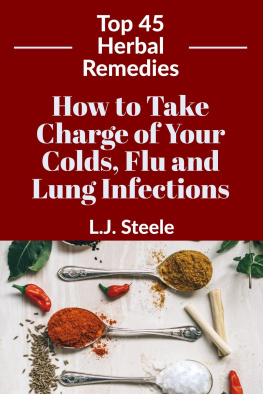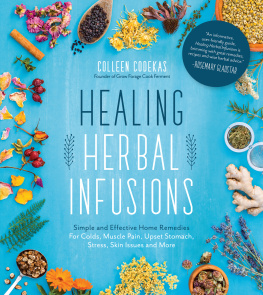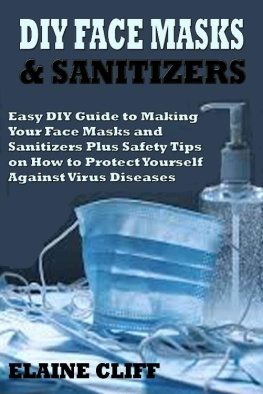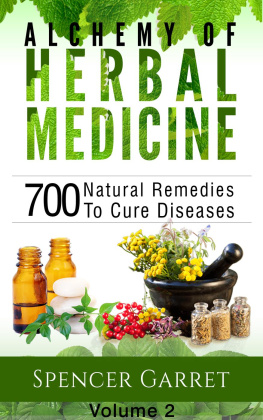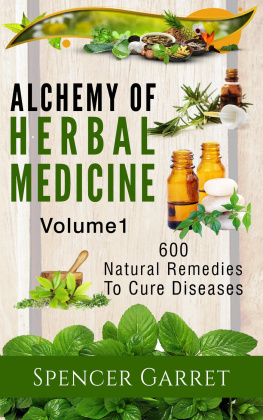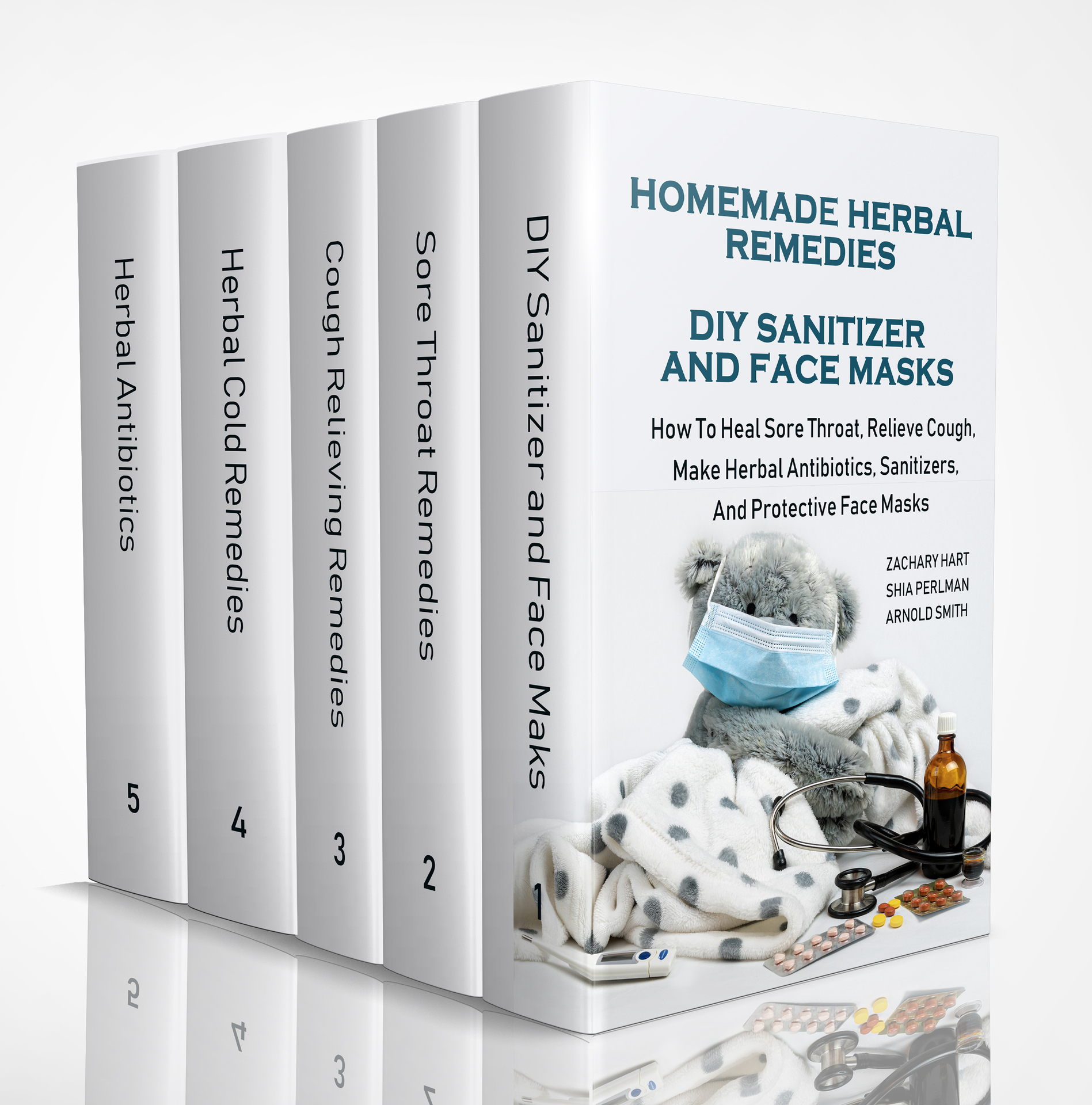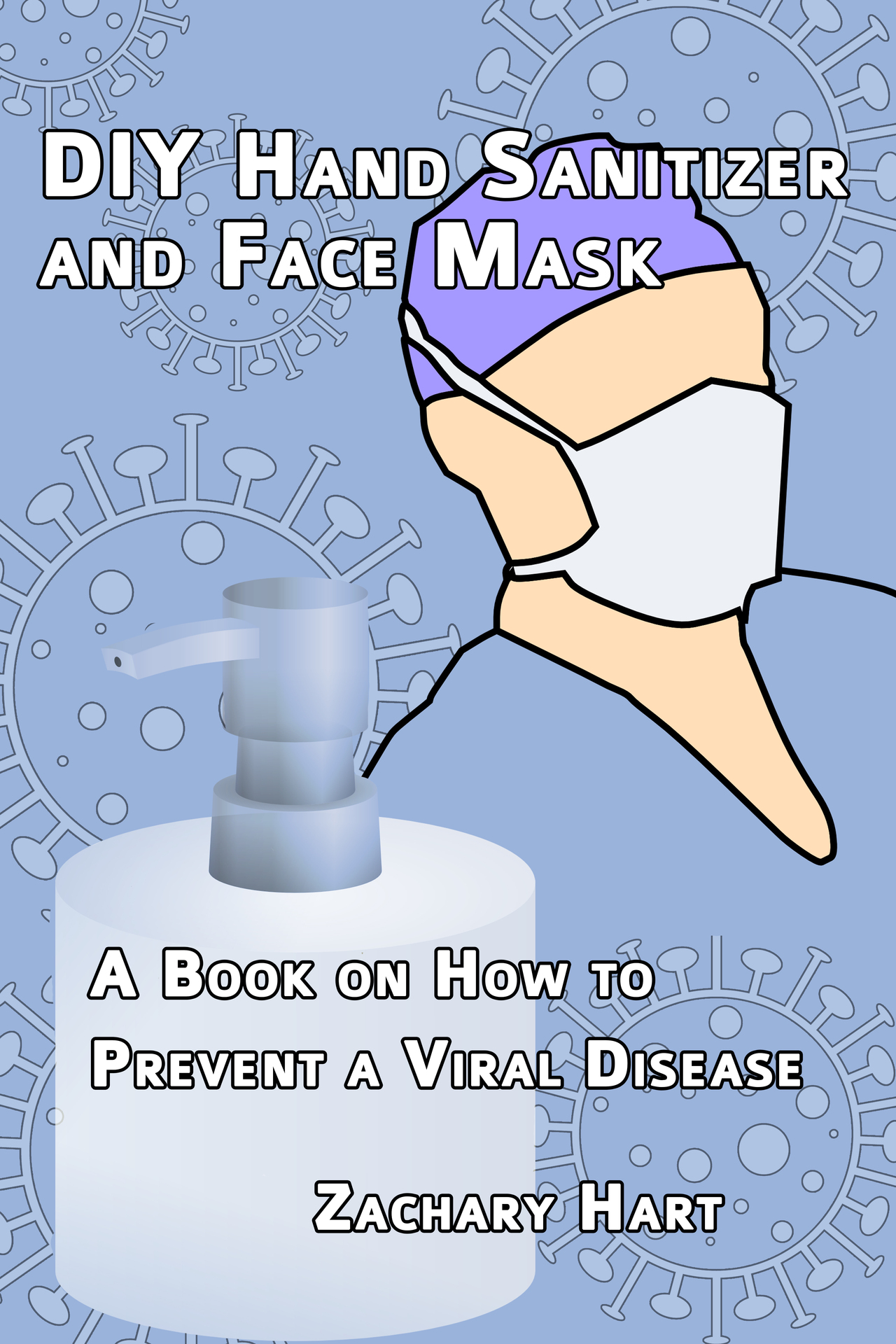Homemade Herbal Remedies + DIY Sanitizer And Face Masks
How To Heal Sore Throat, Relieve Cough, Make Herbal Antibiotics, Sanitizers, And Protective Face Masks
ZACHARY HART, SHIA PERLMAN, ARNOLD SMITH
Disclaimer
Although the information included here has been sourced from very reputable sources, it is not a substitute for medical directives. For that reason, anyone who suspects he/she might have caught the virus or any other infection should consult a physician as soon as possible.
At the same time, basic precautions should continue to be taken, the most important being regular washing of hands with soap and water and avoiding crowded places.
Copyright 2020 Zachary Hart, Shia Perlman, Arnold Smith
All rights reserved
Table of content
Book 1
Book 2
Book 3
Book 4
Book 5
DIY Hand Sanitizer and Face Mask
A Book on How to Prevent a Viral Disease
Chapter 1 Dangers and Spread of Viruses
Among the things that make life enjoyable is good health. This book is dedicated to highlighting the simplest ways to enhance your health and to minimize the risks that are prevalent all around, with special focus on prevention of viral infections.
Among the commonest microorganisms to cause illness are bacteria and viruses. While bacterial infections are easily treated using antibiotics, these medications do not work with viruses. A virus is a very minute parasite known to replicate once it finds its way into a human being or any other living thing.
In fact, viruses are not confined to animals and people only, as they also attack plants. Incidentally, since they are also prone to attacking bacteria, it is possible they could attack the good bacteria in your body and cause your health to deteriorate even faster.
Luckily, the most common viruses people come into contact with do not cause serious illnesses. Often one will catch the cold that ends up healing on its own without any medication, and any medications given are meant to reduce the intensity of the symptoms such as fever, cough, and even pain.
Seriousness of Viral Infections
However, there are those viruses which, if they infect you, end up causing life-threatening health conditions. SARS corona virus, abbreviated as SARS-CoV, is one such virus, which scientists identified in 2003 as it caused the widespread and fatal SARS that started in Guadong, China, in 2002. SARS is an acronym for Severe Acute Respiratory Syndrome.
The beginning of 2020 has seen another viral disease, COVID-19, threaten the global community, starting from China where the first person was diagnosed with the virus in the city of Wuhan. COVID-19 is an acronym for Corona Virus Disease, a respiratory illness whose incubation period is around five days, similar to that of SARS.
The Nature of Viruses
The size of viruses is tinier than that of bacteria, and so it is easier for them to penetrate surfaces and different parts of the body. Once inside the body, the viruses attach themselves onto the cells and prepare to replicate.
It is fortunate that some of the serious diseases caused by viruses, such as chickenpox and polio, have been contained through vaccination, but danger still looms due to the emergence of new strains of viruses whose vaccines are yet to be developed.
According to WHO, or the World Health Organization, SARS, which had been declared a global pandemic in 2003, attacked slightly over eight thousand people and claimed almost eight hundred lives. Whereas the best thing would have been to vaccinate people at risk of getting infected by virtue of proximity to affected areas, it took almost two years to develop a vaccine that could be tested on people.
It is not clear how long it is going to take scientists to develop a vaccine safe enough for testing against COVID-19, and that is why people need to know how to protect themselves in their own ways.
Treatment of Viral Diseases
Viral diseases are not known to have any cures, but besides protection by vaccination where these have been developed, other treatments have been found to mitigate the seriousness of the diseases.
For AIDS, for example, which in full is Acquired Immunodeficiency Syndrome, it is combated using anti-viral medications. Although these drugs have no capacity to crush the virus, they are successful in preventing them from replicating.
Other viral diseases, such as the herpes simplex virus, shingles and the flu are also combated using anti-viral drugs. The CDC or Center for Disease Control advises against the use of antibiotics to fight viral ailments, unless there is reason to believe the person also has some bacterial infection. This is because use of medication where there is no relevant microbial is tantamount to abuse of such medication, and such abuse often increases the risk of the micro-organisms becoming resistant to those drugs.
How Viruses Spread
Viruses spread from the carriers to other people through direct contact. For the corona viruses, which are responsible for SARS and COVID-19, any moisture discharged by an infected person through coughing, sneezing, kissing and such can infect the person it lands on.
Another way viruses are spread is by touching surfaces that an infected person had also touched, because normally such a person has viruses on the hands.
Eating food or taking drinks that an infected person had touched also puts the consumers at risk. The manner in which viruses are spread increases the risk of many people getting infected after the diagnoses of the first few cases.
Viruses like the corona are even more risky considering they are also spread by pets like dogs, and even pests like flies and fleas, when these come into contact with infected people.
Since it is not easy to know the surfaces or pets that infected people have come into contact with, especially because people do not manifest symptoms during the incubation period of the disease, authorities often have no option but to put affected zones in lockdown.
COVID-19, for example, has seen Chinas economy, the globes second biggest, come to a halt, with its numerous factories practically closed. Schools have also been abruptly closed, just as it has happened in 38 other countries that include Hong Kong, Japan, India and Korea.
How to Protect Yourself from Viruses
Whereas the government can institute measures to mitigate the spread of viral diseases such as COVID-19, the most effective measures are those that individuals take.
There are things you can do to ensure you do not spread the virus to people close to you in case you have come into contact with the virus and you do not know it, or even when you know it and are trying to fight your way back to health.
There are also things you can do to safeguard your health, by ensuring you do not get into contact with viruses from people who are infected. One way is to wear a protective face mask, and another is to make good use of hand sanitizers.
Incidentally, when a disease has been declared a pandemic the way SARS was in 2002/03 and the way COVID-19 has been in 2020, people tend to panic and buy ready-made protective material in bulk, fearing there might soon be a shortage. That act of panic buying and hoarding ends up creating a shortage sooner than would have happened, and this becomes a fresh cause for panic.


